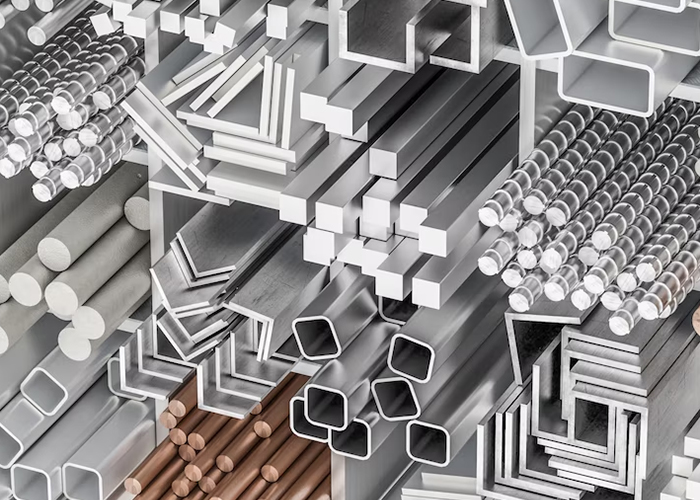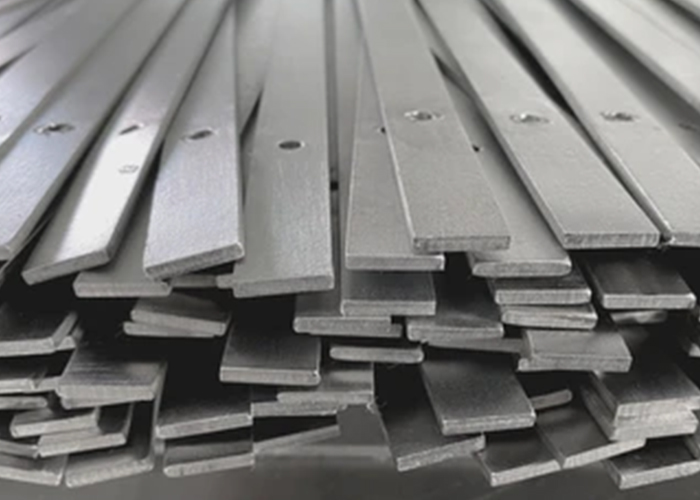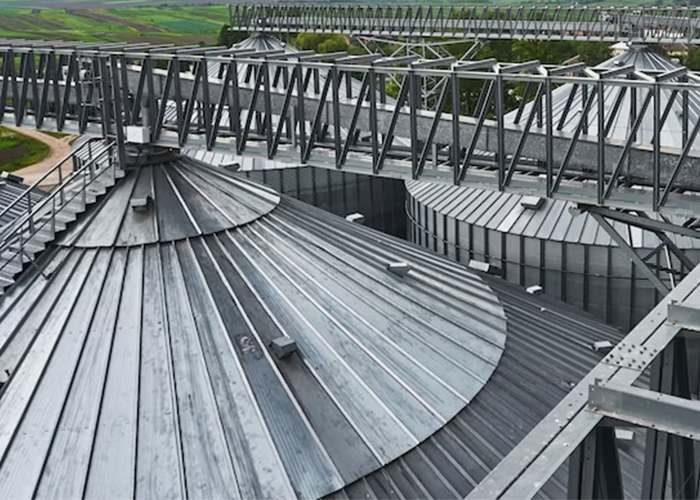At Sree Metaliks, we understand the importance of using high-quality steel when manufacturing products. To ensure our mild steel tensile strength products are of the highest quality, we focus heavily on steel tensile strength. Steel tensile strength is a measure of the amount of force it can withstand before breaking.
|
Table of Content
|
It is one of the most important characteristics to consider when selecting the right steel for a given application. In this blog post, we’ll explain why Sree Metaliks puts such a strong emphasis on steel tensile strength, and what it means for our products.

Importance of Tensile Strength
Tensile strength is one of the most critical mechanical properties of any metal, and steel is no exception. Tensile strength measures a material’s ability to withstand forces that try to stretch or pull it apart. In other words, it’s the maximum stress that steel can handle before it begins to deform or break.
For manufacturers like Sree Metaliks, understanding the tensile strength of steel is crucial because it affects the structural integrity of their products. If the steel used to build a bridge, for instance, cannot handle the weight and stress of passing cars, it will fail, putting countless lives in danger.
Steel’s tensile or mild steel tensile strength can vary depending on its composition and how it was processed. The higher the high tensile steel yield strength, the stronger and more durable the steel is, making it ideal for demanding applications.
Sree Metaliks puts a significant emphasis on the tensile strength of the steel they use in their products. They understand that a higher tensile strength can lead to more efficient and longer-lasting structures, benefiting both their clients and the environment.

Different Types of Steel
Steel is an alloy made primarily from iron with a small percentage of carbon, typically ranging from 0.2% to 2.1%. Steel is one of the most versatile and widely used materials in the world. There are types of mild steel used in various industries, including construction, manufacturing, and transportation.
There are several types of mild steel composition, each with its unique properties and characteristics. Here are the different types of steel that Sree Metaliks uses:
1. Carbon Steel
Carbon steel is the most common type of steel. Mild steel composition contains a small amount of carbon, typically between 0.2% and 2.1%. Carbon steel is widely used in the manufacturing of cars, ships, and construction materials.
2. Alloy Steel
Alloy steel is a type of steel that contains other elements, such as nickel, chromium, and molybdenum. Alloy steel has improved strength, durability, and toughness compared to carbon steel. It is used in the manufacturing of machinery, pipelines, and power generators.
3. Stainless Steel
Stainless steel is a type of steel that contains at least 10.5% chromium. Stainless steel has high corrosion resistance, making it ideal for use in environments where exposure to moisture and chemicals is high. High-tensile steel is commonly used in the manufacturing of kitchenware, medical equipment, and aerospace components.
4. Tool Steel
Tool steel is a type of high tensile steel yield strength that is specially designed for making tools. It has high hardness and resistance to wear and tear. Tool steel is used in the manufacturing of cutting tools, drills, and dies.
Read more: Comprehensive Information on Different Grades of Steel Bars and Their Applications

Why Sree Metaliks Need Stronger Steel?
1. Production Efficiency:
As a manufacturer of high-quality steel products, Sree Metaliks needs stronger steel for various production processes. Using ms steel grade means that they can create products that require less material while still meeting the strength and durability standards their customers expect. This makes production more efficient and cost-effective.
2. Client Satisfaction:
Sree Metaliks’ customers rely on the company to deliver steel products that meet their unique specifications and requirements. Using stronger ms steel grade ensures that these products are robust, long-lasting, and able to withstand harsh conditions. Satisfied clients lead to repeat business and positive word-of-mouth referrals, which ultimately contribute to the company’s bottom line.
3. Safety Measures:
In many applications, steel products must be able to bear a tremendous amount of weight and force. Stronger steel is vital for these applications because it ensures that the products will not buckle, deform, or fail under pressure. The uses and properties of mild steel not only safeguard the end-users but also protect Sree Metaliks’ reputation and liability in the market.
4. Competitive Advantage:
The high tensile steel yield strength manufacturing industry is highly competitive, and Sree Metaliks understands that to stay ahead, it must use the latest technology and materials. Investing in stronger steel gives the company a competitive advantage in the market, enabling it to offer unique products and solutions to its clients that its competitors cannot.
Stronger steel allows Sree Metaliks to reduce the amount of material it needs to produce the same quantity of goods. High tensile steel results in less wastage and, consequently, a lower carbon footprint. In today’s world, environmental sustainability is a significant consideration for both clients and regulatory authorities, and using stronger steel aligns with Sree Metaliks’ vision of being a responsible and eco-friendly company.
Impact of Stronger Steel on the Environment
The production of stronger steel can have a positive impact on the environment. Here are some uses and properties of mild steel that Sree Metaliks focuses on producing stronger steel in an environmentally friendly manner:
- Reduced Carbon Emissions: Stronger steel means that less steel is needed to perform a certain task, which ultimately leads to reduced carbon emissions. Sree Metaliks uses energy-efficient production processes and constantly invests in upgrading its technologies to minimize its carbon footprint.
- Recycling: Sree Metaliks emphasizes the importance of recycling steel scrap to minimize waste and reduce the carbon footprint of the production process. High tensile steel properties also ensure that steel products are recycled at the end of their lifecycle, minimizing their impact on the environment.
- Use of Renewable Energy: Sree Metaliks utilizes renewable energy sources, such as wind, solar, and hydropower to generate electricity to power its manufacturing operations. High-tensile steel is an environmentally sustainable method that ensures the production process does not deplete the planet’s natural resources.
- Reduced Water Consumption: Steel production consumes a lot of water, and this can have a significant impact on the environment. Sree Metaliks has implemented a series of measures, including recycling water and implementing water-saving technologies to reduce water usage in the production process.
Sustainable Supply Chain: Sree Metaliks has a supply chain sustainability strategy that promotes ethical and environmentally responsible sourcing of raw materials. High tensile steel means that the company ensures its raw materials are sustainably sourced and that its suppliers also adopt responsible and environmentally sustainable practices.
Read more: Various Benefits & Advantages Of Steel In Our Lives
Conclusion
At Sree Metaliks, we understand the importance of steel tensile strength and the vital role it plays in ensuring the quality of our products. We are committed to providing our customers with the best possible steel products, and that is why we place a particular emphasis on the tensile strength of our steel.
For more information, please reach out to us at: Sales@sreemetaliks.com

